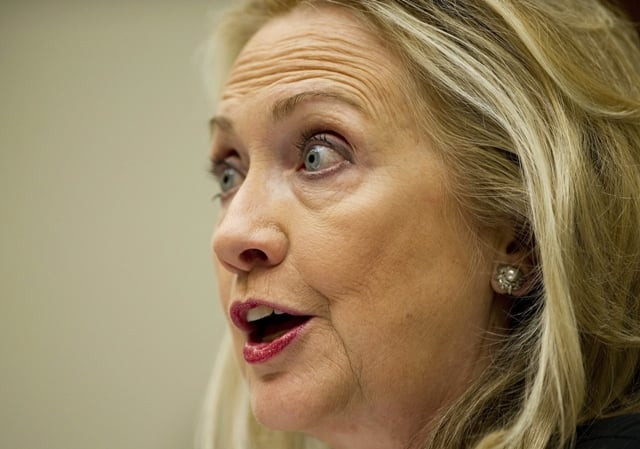Afghan conference to chart future after NATO exit
The US will warn against efforts to destabilise Afghanistan when it joins Pakistan and other key players in Turkey.

US Secretary of State Hillary Clinton and Pakistani Foreign Minister Hina Rabbani Khar will be among the senior diplomats from 20 countries joining representatives from aid organisations at the talks in Istanbul almost exactly 10 years since the Taliban were driven out of power in Kabul.
The Istanbul conference is intended to map out Afghanistan's future with the US-led NATO mission already locked into troop drawdowns that are scheduled to bring all foreign combat troops home by 2014.
Selcuk Unal of Turkey's foreign ministry said delegates would discuss ways of deepening regional cooperation in South Asia.
In particular, Clinton is set to promote her New Silk Road project linking the economies of Afghanistan and Pakistan with other Central and South Asian countries as part of a long-term plan to boost regional peace and stability.
Despite billions of dollars poured into Afghanistan since the coalition forces ousted Taliban from power in mid-November 2001, Afghanistan remains one of the poorest countries in the world, with half of its 30 million population living below poverty line, according to the United Nations.
And the Taliban's resilience a decade after its toppling was again underlined on Saturday when it killed at least 17 people in a car bomb attack on a NATO convoy in Kabul.
Pakistan was the Taliban's chief diplomatic backer when it was in power and is regularly accused by both Kabul and Washington of helping destablise its northern neigbhour.
Clinton said last week that the US was "working with the Afghan government to help them secure commitments from all of their neighbours to respect Afghan sovereignty and territorial integrity and to support Afghan reconciliation.
"This will be a key focus when I go to Istanbul next week to meet with regional foreign ministers," she told Congress, shortly after her return from a visit to both Pakistan and Afghanistan.
Karzai recently accused Pakistan of playing a "double-game" with its links to militant groups including the Haqqani network, which has been behind some of the deadliest recent attacks in Afghanistan.
Some American officials have been even more scathing, with the outgoing US military chief, Mike Mullen, describing the Haqqani network as a "veritable arm" of Pakistan's Inter-Services Intelligence.
Karzai himself will be in Islamabad and will take part in a tripartite summit on the eve of the larger talks with Turkish President Abullah Gul and his Pakistani counterpart Asif Ali Zardari.
That meeting is specifically designed to develop further cooperation and dialogue between Afghanistan and Pakistan, said Unal.
"Pakistan supports efforts for a secure, peaceful and prosperous Afghanistan contributing to stability, security and prosperity in the region," Pakistani foreign ministry spokeswoman Tehmina Janjua told reporters last week.
The US provides more than two-thirds of a total of 140,000 foreign troops currently in Afghanistan.
Apart from United States, the other four permanent members of the UN Security Council -- Britain, France, Russia and China, will participate in the Istanbul conference. One notable absentee however is Iran, which has a long border with western Afghanistan.
A follow-up conference on Afghanistan will be held in Bonn in early December.



















COMMENTS
Comments are moderated and generally will be posted if they are on-topic and not abusive.
For more information, please see our Comments FAQ